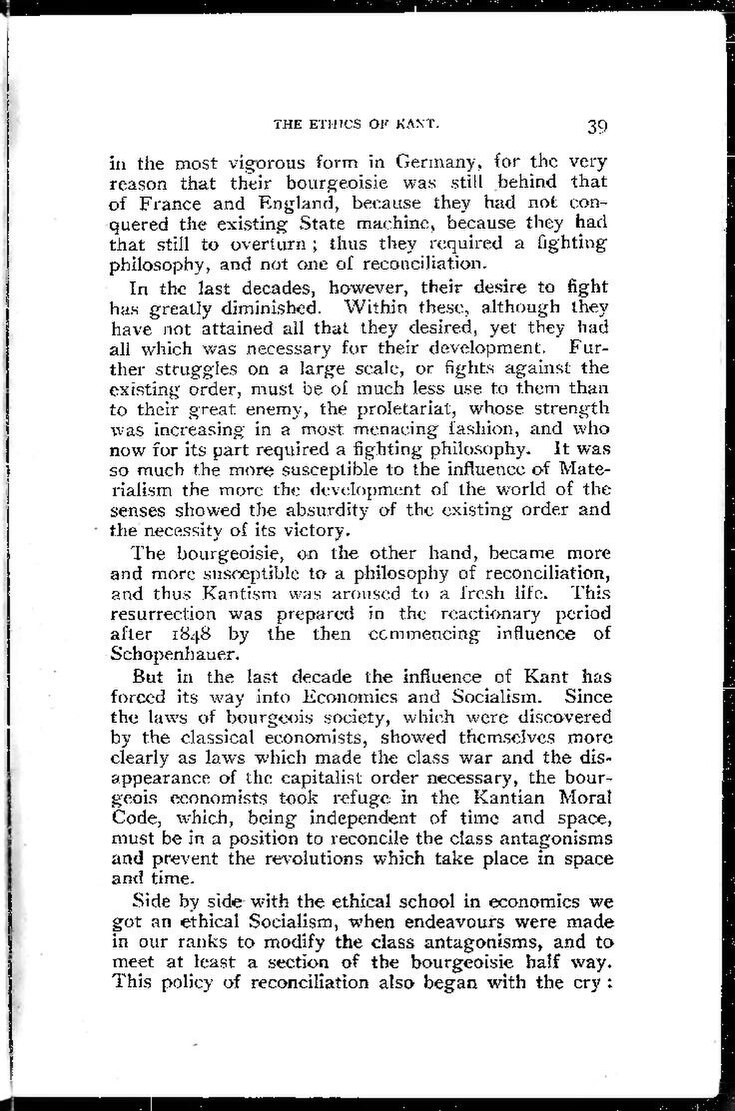in the most vigorous form in Germany, for the very reason that their bourgeoisie was still behind that of France and England, because they had not conquered the existing State machine, because they had that still to overturn; thus they required a fighting philosophy, and not one of reconciliation.
In the last decades, however, their desire to fight has greatly diminished. Within these, although they have not attained all that they desired, yet they had all which was necessary for their development. Further struggles on a large scale, or fights against the existing order, must be of much less use to them than to their great enemy, the proletariat, whose strength was increasing in a most menacing fashion, and who now for its part required a fighting philosophy. It was so much the more susceptible to the influence of Materialism the more the development of the world of the senses showed the absurdity of the existing order and the necessity of its victory.
The bourgeoisie, on the other hand, became more and more susceptible to a philosophy of reconciliation, and thus Kantism was aroused to a fresh life. This resurrection was prepared in the reactionary period after 1848 by the then commencing influence of Schopenhauer.
But in the last decade the influence of Kant has forced its way into Economics and Socialism. Since the laws of bourgeois society, which were discovered by the classical economists, showed themselves more clearly as laws which made the class war and the disappearance of the capitalist order necessary, the bourgeois economists took refuge in the Kantian Moral Code, which, being independent of time and space, must be in a position to reconcile the class antagonisms and prevent the revolutions which take place in space and time.
Side by side with the ethical school in economics we got an ethical Socialism, when endeavours were made in our ranks to modify the class antagonisms, and to meet at least a section of the bourgeoisie half way. This policy of reconciliation also began with the cry:
